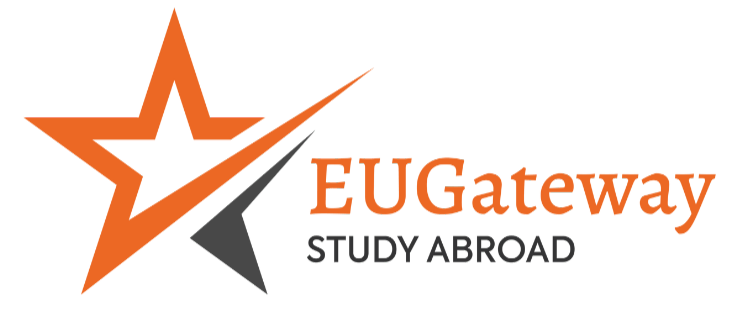The Global mobility and use of technology have made possible for a lot of parents from India to send their kids abroad for studies in Germany starting early, i.e. right after their High Secondary or Senior Secondary school. To start with, I would list a few reasons why Indian parents are now more eager to send their kids early for Higher studies abroad than before:
- Rising disposable income with both parents working, and Educational loans made available, it is easier for parents to fund their kid studies.
- Cutthroat competition among colleges & universities in India where cut-offs go as high as 98% to get admitted into top colleges in India.
- The use of technology has made it easier for parents to continue to stay connected with their kids while studying in a foreign country.
- The cost of studying bachelor’s in some European countries comes cheaper as compared to Indian top colleges or Universities.
- Making their kids Global citizens, accessing a better quality of life, and making them learn a multi-cultural environment also plays a role in decision making.
- Getting them employed and preparing them for higher studies after graduation also has a significant role to play in deciding early.
- The maturity level of kids has moved a few years ahead due to the wide use of technology & gadgets, thereby making them early learners and adopters of many new things in life than we as parents ever head.
Coming back to our topic of Bachelors’s Education in Germany, the foremost requisite for Indian students to apply for Higher education in Germany is 13 years of school education. This is where it gets tricky, widely accepted Indian education board largely following 10+2 school system format. But, Indian parents and students need not worry, as there is a way out. Following are the ways one can fulfill German Education requirements to apply for Bachelor studies:
- After, 12th, complete 1 year of college at Indian University in the desired subject and then apply for Bachelors’s in Germany.
- Student apply for 1-year Foundation course in Germany, the so-called Studienkolleg pass the exam (Feststellungsprufung – FSP) and then go on studying bachelors in any public or private university in Germany
- Students pass out from IB Board or A levels to get their qualification equivalent to the German school level of educations. These students can apply directly to Universities without any exams.

Now let us talk about Studienkolleg in more details:
Studienkolleg is a German foundation year program to prepare students coming from different schooling background and desire to study bachelor’s studies in Germany. This foundation year touted to bring International students at par with German higher level of education. Students can enroll for a public Studienkolleg or Private studienkolleg in Germany. The studienkolleg lasts for about 10 months followed by an exam (FSP), passing it successfully leads to admission to the desired program & university. Studienkolleg is generally done in the German language, but nowadays few Private colleges are offering it in the English language as well for the English language bachelors program being offered by selected German Universities.
Costs: Public Studienkolleg does not charge tuition fees, but you have to cover your living expenses for a year. They are also very limited in numbers, thereby limiting the possibilities to admit students beyond the designated numbers.
Private Studienkolleg’s however, can accept more students and cost somewhere around Euro 8000 -10000 for a year excluding living expenses.
Types of Course: Studienkolleg is divided into various courses & Combinations like T course, W Course & M course, G Course & S Course. One should opt for a T course if they have an interest in Technical courses like mathematics, Physics, Chemistry, and or IT. Students should opt for W courses if they have an interest in Business & Economics and or social science and opt for M courses if have an interest in Medicine or related studies. They can also choose a G course for Humanities studies and an S course for languages.
Application to Public Studienkolleg: Students first need to have at least 80% or above in their 12th standard, followed by an invitation letter received from the desired university stating that they can apply for the designated studienkolleg in a particular state. Once an invitation letter is received, students need to appear for the exam called Aufnahmeprufung, which is testing their German (B1-B2) and mathematical skills or studies from their previous school and whether they qualify to take that particular foundation course. Once you get admitted to a studienkolleg and have studied for 10 months and afterward you need to appear for the FSP exam. FSP is the last hurdle you need to cross to study bachelors in Germany.
Private Studienkolleg is rather easy as you need not appear for Aufnahmeprufung and neither you need a B1-B2 level of the German language to start. You study the German language along with the desired subject course during your Studienkolleg year. However, you still need to write Feststellungsprifung (FSP)exam either in English or German language (depending on the course and study track).
Studienkolleg Duration: 1 Year, 2-semester program, and one a window to join are twice in a year, Summer semester and Winter semester. Please keep in mind the deadlines to apply for respective programs directly with the Universities (via www.uni-assist.de) to get an invitation on time to apply for the entrance exam for a particular studienkolleg.
Documents needed to apply for Studienkolleg (Public)
- Final 12th Mark-sheet with certificate
- Invitation from the University
- CV in the German Language
- German level exam certificate B2 level (usually from Goethe or TestDaf)[1]
- Passport copy
- Photo
Please note all the above documents need to be duly notarized by local authorities before submitting them.
Top Studienkolleg Centers:
- Studienkolleg Munich – Bavaria
- Studienkolleg Coburg – Bavaria
- Studienkolleg FU Berlin – Berlin
- Studienkolleg KIT – Baden Wuerttemburg
- Studienkolleg Hamburg – Hamburg
- Internationales Studienzentrum – Hesse
Thank you for reading through this document, if you have any more questions related to Studienkolleg or studying Bachelors in Germany, please send me an email at sumiit.rai@asksumiit.com / sumit.rai@eugateway.in.



